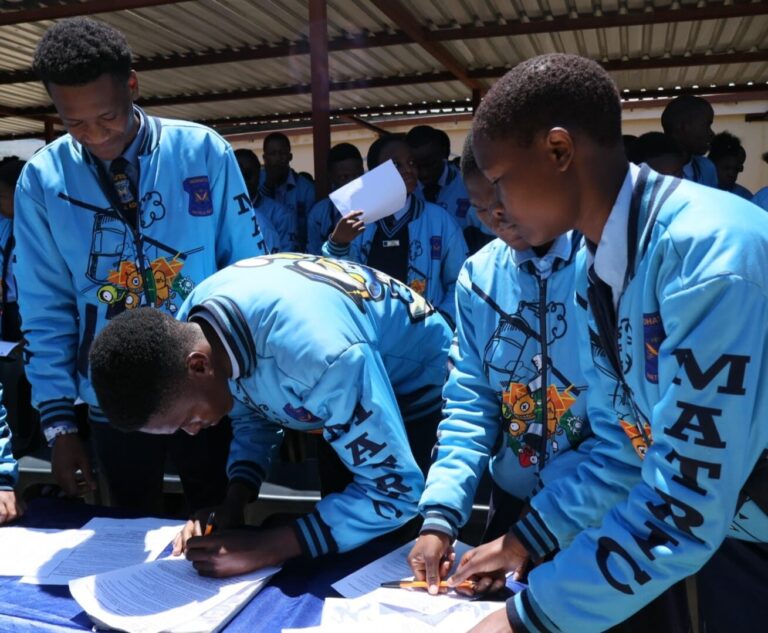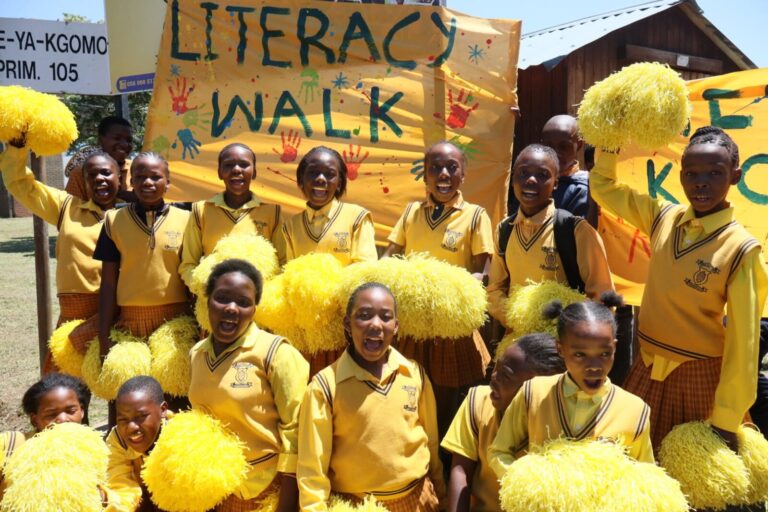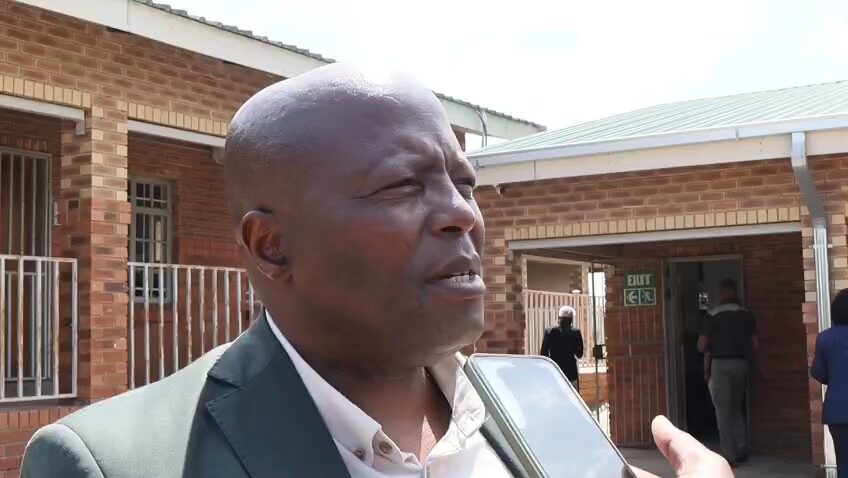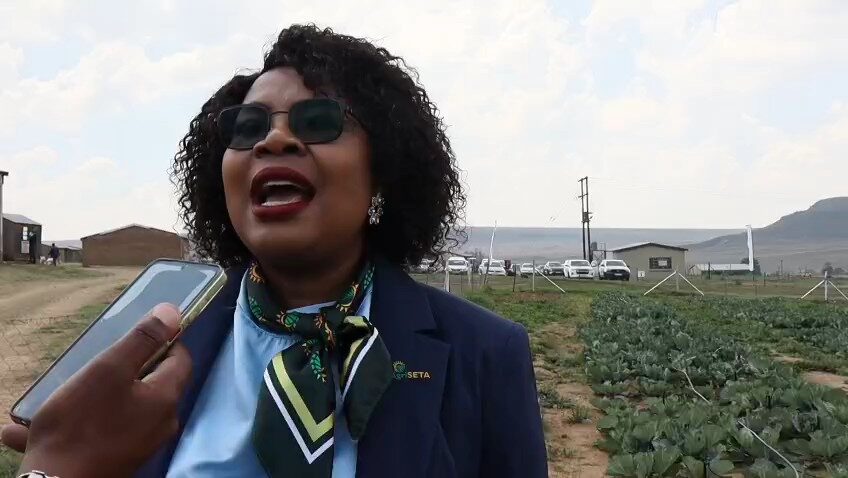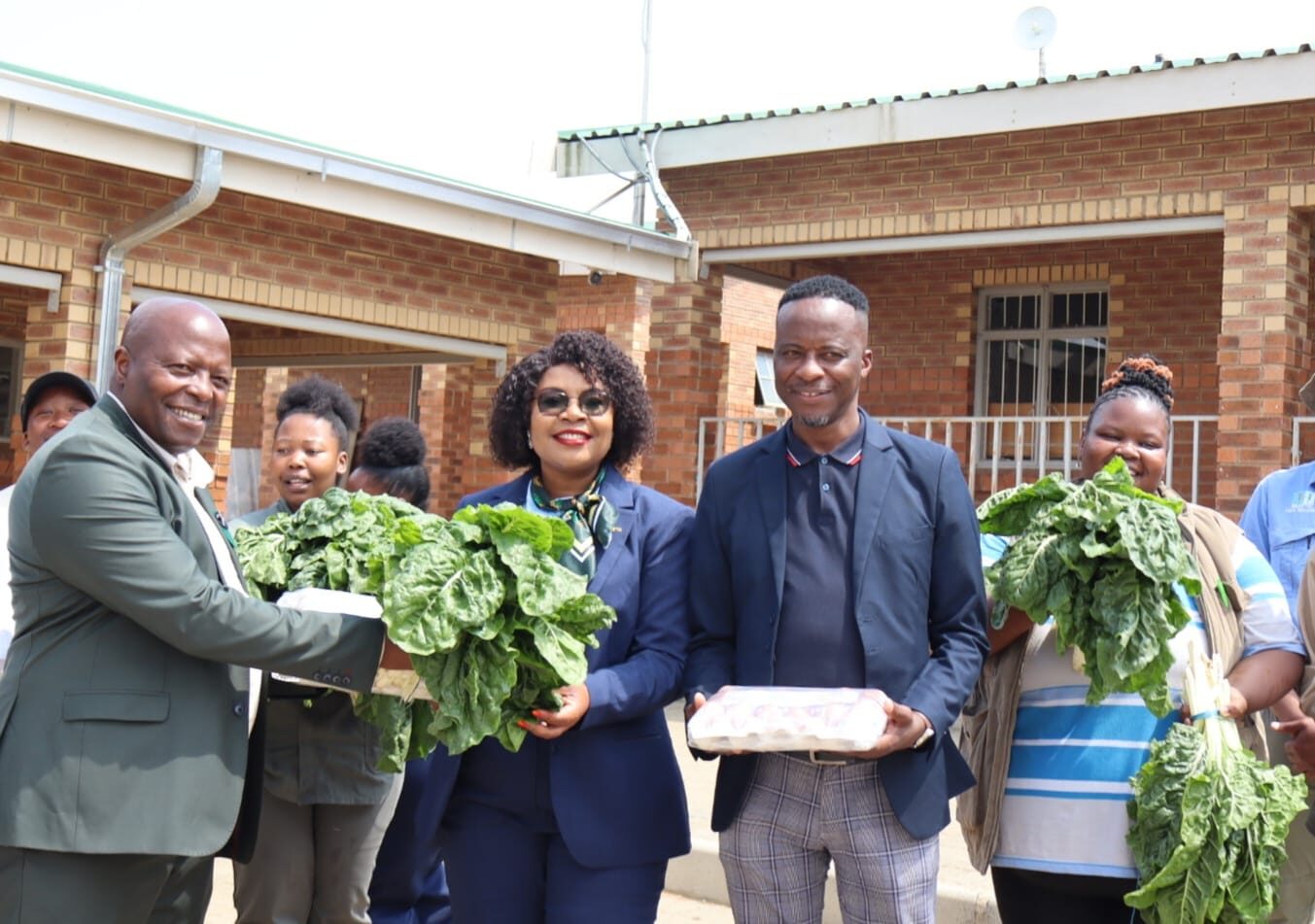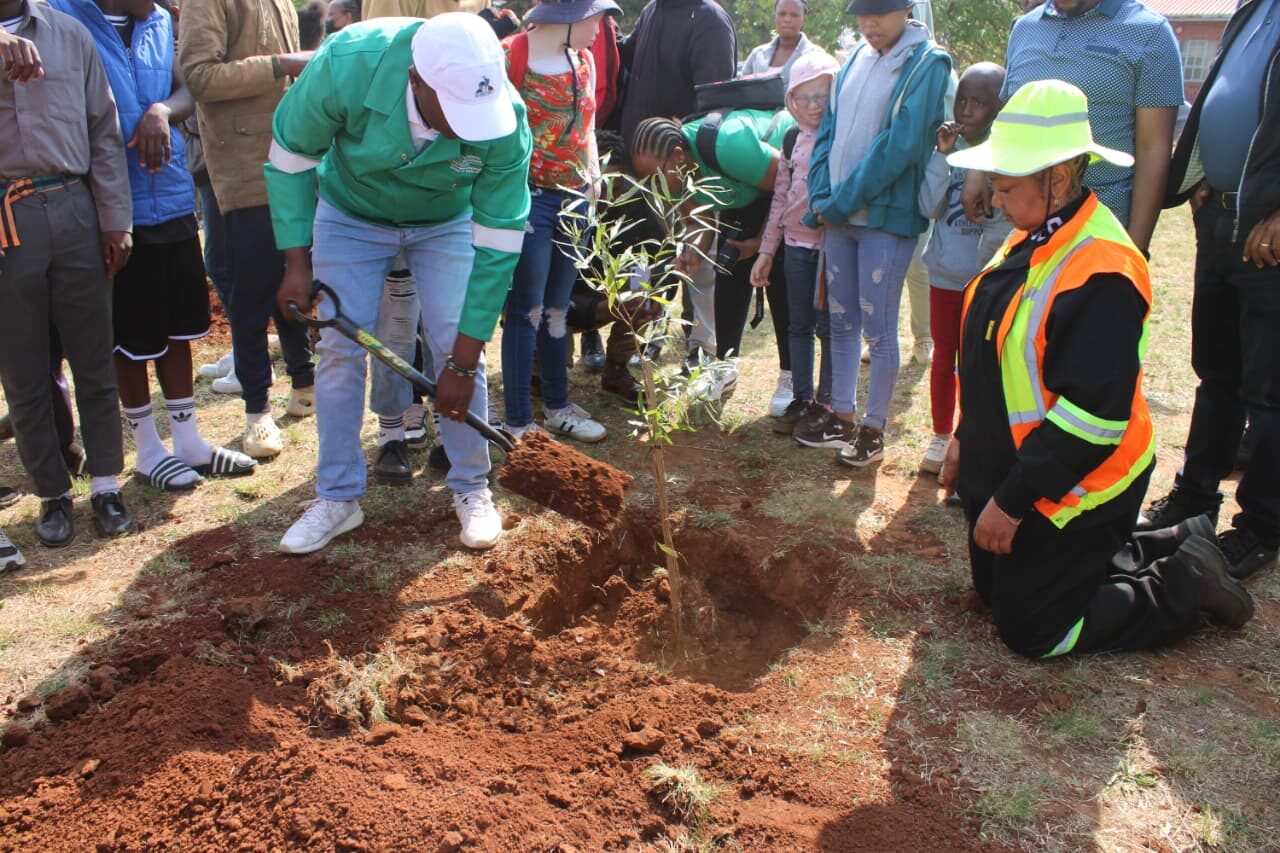By Emily Setona
QWAQWA – The Agricultural and Critical Skills Careers Expo at Maluti TVET College’s Rosendal Farm has sparked fresh enthusiasm among learners, transforming the way many young people view agriculture – not as a traditional or laborious pursuit, but as a modern, innovative and rewarding career path crucial to South Africa’s food security.
Hosted by the Maluti TVET College Sefikeng Campus in collaboration with AgriSeta and several partners, the expo on 9 October 2025 drew learners from Mampoi, Tsholo, Reahola, Leratsoana, Mabela and Kwetlisong Secondary Schools.
The event aimed to “make agriculture fashionable” by connecting learners with industry experts and government officials who highlighted opportunities and the importance of youth participation in the sector.
Delivering the keynote address, AgriSeta Executive Manager Dr. Bertha Letsoalo called on young people to see agriculture as a sector of innovation and leadership rather than subsistence.
“Those who work hard will have abundance. If you ate today, thank a farmer. If you want to eat tomorrow, thank the learner sitting next to you who wants to pursue a career in agriculture,” she told the learners.
Dr. Letsoalo underscored the need for collaboration between institutions, communities and traditional authorities to unlock land and resources for agricultural growth.
“We cannot do this alone. Our traditional leaders play a vital role in ensuring access to land. When I look at you, I don’t see future leaders, I see leaders of now. The choices you make today determine tomorrow’s food security. Agriculture today is smart, data-driven and technology-based; it’s no longer about dirt and long hours in the sun,” she said.
Maluti TVET College Principal Motlalepula Tsotetsi said hosting the expo aligned with the college’s mission to make agriculture more appealing to young people while contributing to national development goals.
“It is a profound honour for Maluti TVET College to host this AgriSeta Careers Expo. We are here to make agriculture fashionable. Combating food insecurity is central to our mandate and aligns with the Vision 2030 goals. While we continue striving for internal self-sufficiency, challenges such as outsourcing tractors remain setbacks at our Rosendal farm,” Tsotetsi said.
Tsotetsi urged learners to view agriculture as a profession of pride, purpose and prosperity.
“Agriculture is not a fall-back career, it is a foundation for our survival. Farming sustains our livelihoods and feeds our nation. Take advantage of all the stakeholders here today, ask questions, and explore the many paths this field offers,” he said.
George Mathye, Deputy Director for Policy Support and Tertiary Education at the Department of Agriculture, addressed common misconceptions about the field being limited to manual labour.
“When young people hear about agriculture, they often picture hard labour in the sun. But agriculture today needs scientists, engineers, technologists and entrepreneurs. There’s a vast range of careers – from food technologists and soil scientists to drone operators and data analysts. The Department of Agriculture also provides bursaries for learners eager to pursue these paths,” he said.
Throughout the day, students engaged with exhibitors, asking questions about careers in agricultural technology, business and environmental management. For many, the expo reshaped long-held assumptions.
Innocent Mokoena, a Grade 11 learner from Kwetlisong Secondary School in Petrus Steyn, said the event opened her eyes to agriculture’s broader opportunities.
“I used to think agriculture was just about farming, but now I see there’s so much more. There are careers in technology, management, and even science. Agriculture really is the future,” she said.
Dimakatso Motsoeneng, a 21-year old learner from Leratsoana Secondary School in Arlington, said the sessions motivated her to explore agriculture more seriously.
“I was inspired to see how agriculture connects to so many industries. I didn’t know there were so many career options in this field. Now I’m considering studying agriculture after matric,” she said.
For others, like Mojalefa Hlatswayo of Tsholo Secondary School, the event reinforced an existing passion.
“I’ve always loved agriculture. Today I learned that with the right skills, I can run my own farm and even employ others. It made me proud of what I want to do,” he said.
Speakers and exhibitors agreed that the future of the agricultural industry depends on innovation, youth participation, and education. AgriSeta representatives emphasised that the organization’s role extends beyond training; it includes empowering rural communities, supporting small-scale farmers, and bridging the gap between education and employment.
The expo also showcased how technology and modern tools are reshaping farming, from precision agriculture and drone-based monitoring to climate-smart techniques. Presenters encouraged learners to embrace digital skills, sustainability, and entrepreneurship as central components of 21st-century agriculture.
By the end of the day, learners left with new perspectives and many with ambitions to become the next generation of agri-innovators.
The Agricultural and Critical Skills Careers Expo was more than just an information session. It was a rallying call to young Basotho to reimagine agriculture as a dynamic, future-focused profession that feeds nations, drives economies, and offers limitless opportunities for those ready to get their hands not just dirty, but digitally skilled.
As Dr. Letsoalo concluded, “Agriculture is the heartbeat of our economy. The sooner we make it fashionable, the sooner we secure our future.”









